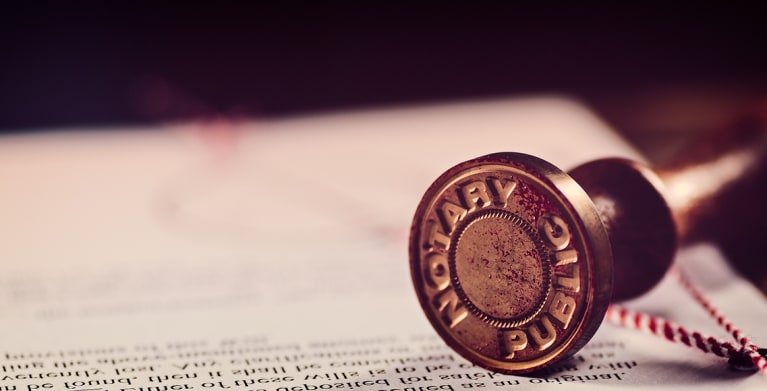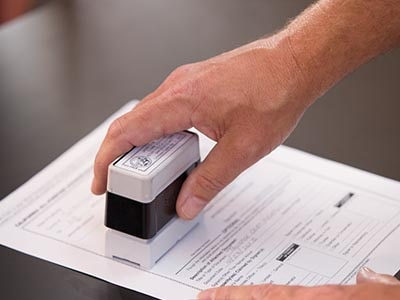Apostille Refine Explained: Streamlining Global Document Confirmation
Wiki Article
Debunking Notarial Job: Simplifying the Role and Significance of Notaries
In the detailed internet of lawful paperwork and verification, notaries stand as columns of assurance and authenticity. Their function, commonly shrouded in secret for numerous, brings considerable weight in making certain the validity and honesty of essential documents. As guardians of legitimacy and fact, notaries play a crucial part in our culture, yet their work is not constantly fully recognized. By untangling the intricacies bordering notarial methods and shedding light on the relevance of their acts, a clearer understanding emerges of the vital duty notaries play in promoting the textile of legal and contractual agreements.The History of Notarial Work
The history of notarial job days back to ancient civilizations, where scribes played an important duty in tape-recording important info and confirming records. This led to the development of notaries, people appointed by the state to act as impartial witnesses in lawful issues.
Throughout the Center Ages, notaries gained importance in Europe, with their features increasing to include drafting lawful papers, licensing signatures, and maintaining documents. The rise of international trade further stressed the relevance of notarial operate in verifying contracts and arrangements across borders.
In the contemporary era, notaries continue to play an important duty in lawful and organization deals by confirming identifications, validating the credibility of papers, and protecting against fraudulence. Their function in licensing the legitimacy of agreements includes a layer of safety and security and depend the ever-evolving landscape of commerce and legislation.

Tasks and Responsibilities of Notaries
The historical evolution of notarial job from old people to the contemporary period has shaped the unique obligations and duties that notaries support in legal and organization deals today. Notaries play an essential role in validating the authenticity of documents and the identity of signatures. One of their key duties is to witness the signing of vital files, such as agreements, acts, and wills, to ensure that all parties are participating in agreements purposefully and willingly. Notaries additionally validate that notaries are of sound mind and not under duress or coercion.In addition, notaries are tasked with carrying out oaths and affirmations, which are critical in lawful process and the execution of testimonies. They accredit copies of initial documents, providing assurance to establishments that the copies hold true replicas of the originals. Notaries should preserve precise records of all transactions they oversee to make certain transparency and accountability. In general, the tasks and responsibilities of notaries are necessary in guarding the honesty and legitimacy of different papers and deals.
Notarial Certificates and Signatures
Exhibiting meticulous attention to detail, notarial certifications and signatures function as important parts in validating the authenticity of lawful files. Notarial certifications normally consist of essential information such as the date of registration, the names of the signatories, a summary of the record, and the notary's official seal. These certifications give a clear document of the notarial act, Deceased Estate ensuring that the paper can be conveniently determined and mapped back to the notary that oversaw the procedure.Signatures play a pivotal role in notarial work, as they indicate the agreement and approval of the events involved. Notaries thoroughly witness the finalizing of files to confirm the identification of the signatories and validate that they are authorizing of their own free choice. By attaching their official seal and trademark to the file, notaries certify that the required treatments have been adhered to and that the paper is valid and enforceable.
Essentially, notarial certificates and trademarks are the hallmark of authenticity in lawful purchases, supplying assurance to all parties involved that the documents are legitimate and binding.
Importance of Notarial Acts

Notarization Process Described
The notarization procedure commonly starts with the private offering the document to a notary public. As soon as the identification is confirmed, the notary guarantees that the individual signing the record does so willingly and without any kind of browbeating.
Verdict

Notarial certifications typically include vital details such as the date of notarization, the names of the notaries, a description of the paper, and the notary's main seal. These certifications provide a clear record of the notarial act, making sure that the file can be easily identified and mapped back to the notary that oversaw the process.
By affixing their official seal and signature to the file, notaries accredit that the required procedures have been complied with and that the file is enforceable and valid.
By confirming the identity of the signatories, confirming their determination to enter into the agreement, and licensing the day and area of the finalizing, notaries play a critical duty in promoting the legitimacy of lawful papers.After the file is signed, the notary will fasten their main seal or stamp onto the paper.
Report this wiki page